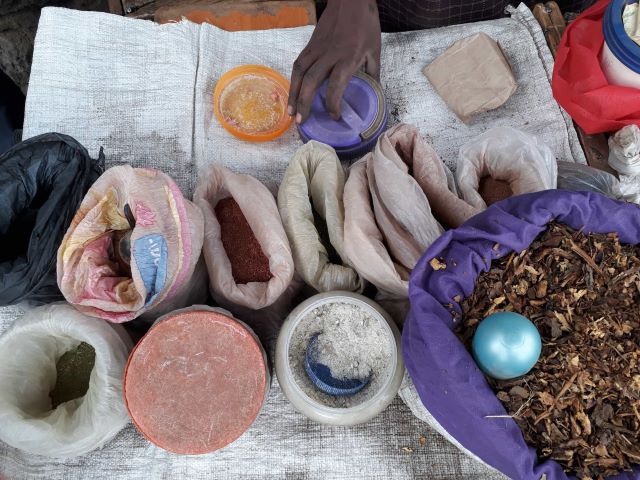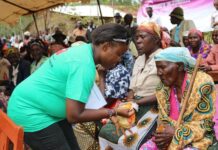Illustrative Image: From Bush Medicine to Credentials: The Case of Herbal Medicine under the TVET System
Image Source & Credit: Journal of Global Health Reports
Ownership and Usage Policy
For centuries, indigenous communities across Africa have relied on “bush medicine”—a term often used to describe traditional herbal remedies sourced from nature—to manage and treat health conditions. These natural therapies, passed down through generations via oral tradition, have long played a pivotal role in community health. However, for much of history, these practices were sidelined by formal education systems and viewed with skepticism by proponents of biomedical science.
Today, the narrative is shifting. Herbal medicine is gradually transitioning from its informal roots into structured, regulated academic and vocational training systems. One of the most transformative platforms facilitating this transition is the Technical and Vocational Education and Training (TVET) system. This article explores how herbal medicine is being repositioned from bush lore to a credible, certifiable field under TVET in Africa, with a focus on Ghana as a case study.
The Legacy of Bush Medicine
Traditional herbal medicine, often practiced by community healers, is deeply embedded in African cosmology. Known for its reliance on spiritual, metaphysical, and ecological wisdom, bush medicine has been the cornerstone of indigenous healthcare systems. Yet, the absence of standardized knowledge transfer, scientific validation, and formal education pathways has historically undermined its legitimacy in modern policy frameworks.
In Ghana and many other African nations, herbalists have long operated outside the mainstream health and education systems. Their knowledge was respected locally but lacked the institutional recognition needed for broader integration into public health or academic systems.
Why TVET Matters for Herbal Medicine
The integration of herbal medicine into the TVET framework marks a significant paradigm shift. TVET is designed to provide practical skills, competencies, and qualifications that prepare learners for specific occupations. By situating herbal medicine within this structure, practitioners gain formal credentials that enhance their professional legitimacy, employability, and mobility across borders.
- Key Benefits of TVET Integration:
- Standardization of Curriculum – TVET introduces uniform training modules, ensuring practitioners acquire core competencies in botany, pharmacognosy, safety, hygiene, ethics, and client care.
- Accreditation and Certification – Learners receive National Proficiency I & II and National Certificates I & II, and HNDs, transforming informal knowledge into recognized qualifications.
- Quality Assurance and Regulation – National qualification frameworks ensure that herbal medicine programs meet educational and professional standards.
- Bridging the Gap – TVET provides a bridge between indigenous healing and modern healthcare systems, making collaboration and referrals more feasible.
Ghana’s Pioneering Role
Ghana has emerged as a continental leader in formalizing herbal medicine under the TVET system. Through the Commission for Technical and Vocational Education and Training (CTVET), Ghana has established occupational standards for Herbal Medicine, Naturopathy, and Holistic Medicine, marking a historic milestone for African traditional medicine.
The National Occupational Standards (NOS) now define the skills and competencies required for various roles within the herbal medicine value chain—from wild harvesting and drying to compounding, dispensing, and wellness practice. Institutions like Nyarkotey University College of Holistic Medicine & Technology are spearheading the development of diploma and degree-level programs that align with these standards.
Challenges and Considerations
While the progress is laudable, several challenges remain:
- Skepticism and Stigma – Many still view traditional medicine as unscientific, despite its growing body of empirical evidence.
- Resource Constraints – Establishing laboratories, herbariums, and clinics for training requires significant investment.
- Intellectual Property – There is a need to protect the indigenous knowledge of local healers within TVET programs through fair benefit-sharing and recognition mechanisms.
- Faculty Development – Training educators with both indigenous and scientific knowledge remains a gap in many countries.
The Way Forward: Policy and Innovation
To consolidate gains, African governments and development partners must:
- Strengthen partnerships between traditional healers, research institutions, and TVET providers.
- Support TVET-accredited herbal medicine schools with funding, infrastructure, and curriculum development.
- Institutionalize clinical training in herbal hospitals and alternative medicine clinics.
- Create pathways for continuous professional development (CPD), entrepreneurship, and digital learning platforms for herbal practitioners.
Moreover, regional frameworks such as the African Continental Qualifications Framework (ACQF) could help standardize herbal medicine credentials across borders, fostering practitioner mobility and mutual recognition.
Conclusion
The journey from bush medicine to credentials reflects a broader decolonization of knowledge in Africa’s education and health sectors. Through the TVET system, herbal medicine is gaining its rightful place as a respected, structured, and impactful field of study and practice. As we move toward a future of integrative healthcare, the formal recognition of indigenous wisdom through technical education is not just overdue—it is essential for sustainable development, public health, and cultural preservation.













 The African Research (AR) Index is a comprehensive scholarly directory and database focused explicitly on journal publishers that publish and disseminate African research.
The African Research (AR) Index is a comprehensive scholarly directory and database focused explicitly on journal publishers that publish and disseminate African research.


Such a powerful piece by our indefatigable leader and founder of NYARKOTEY UNIVERSITY COLLEGE. This is well researched piece and it really shows how good and inspiring you are. Congratulations for this masterpiece.